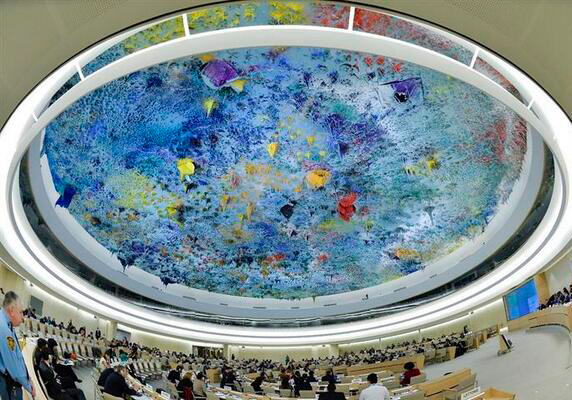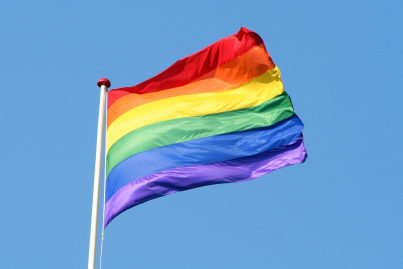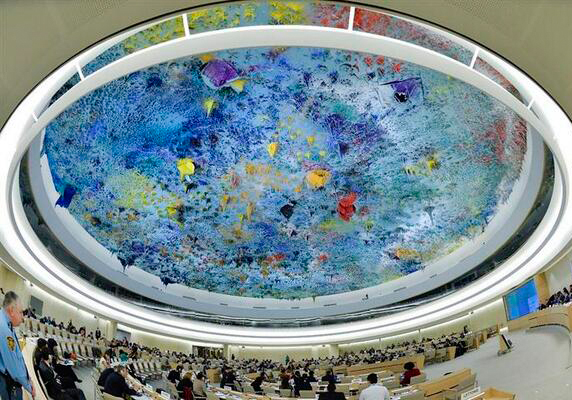
Jun 13, 2014 | Advocacy, Non-legal submissions
The ICJ today delivered an oral statement on extrajudicial, summary or arbitrary executions, expressing concerns about recent and pending legislation in Pakistan on the use of firearms and other force by law enforcement officials.
The joint statement, delivered at the UN Human Rights Council during the interactive dialogue with the Special Rapporteur and on behalf also of the Human Rights Commission of Pakistan (HRCP), expressed appreciation for the Special Rapporteur’s emphasis in his study on the issue, on the need for states to bring domestic laws on the use of force by law enforcement agencies, into line with international standards.
The statement noted that it was not clear whether the Protection of Pakistan Ordinance (PPO) 2013, which is currently in force, and the proposed Protection of Pakistan Bill (PPB) 2014 currently being debated in Parliament, were provided for review.
The statement explained how the PPO and PPB contain provisions that give law enforcement agencies overbroad powers to use firearms without independent accountability, in contravention of international standards. They increase the risk of use of excessive and lethal force and arbitrary deprivation of life.
The full statement may be downloaded in PDF form: Advocacy-HRC26-SREJEs-12062014.
The Report of the Special Rapporteur is available here.

Jun 11, 2014 | Advocacy, Non-legal submissions
The ICJ delivered an oral statement to the UN Human Rights Council today, in the interactive dialogue with the Working Group on business and human rights.
The statement, made jointly with FIDH, Franciscans International, and CIDSE, noted the lack of implementation of the existing UN Guiding Principles on Business and Human Rights at the national level. It highlighted the systematic obstacles faced by many victims of human rights violations involving businesses.
The statement called on the council to continue building on the normative and institutional progress made by the Guiding Principles, and take decisive action to start a process towards the elaboration of a legally binding instrument in the area of business and human rights.
BHRstatement ICJ FIDH CIDSE FI-advocay-non legal submission-2014 (full text in pdf)

Jun 11, 2014 | Advocacy, Non-legal submissions
The ICJ, together with the International Lesbian and Gay Association (ILGA) and on behalf of ARC International, today delivered an oral statement to the Human Rights Council during an interactive dialogue with the UN Special Rapporteur on peaceful assembly and association.
The report of the Special Rapporteur addressed challenges faced by groups at risk, including lesbian, gay, bisexual, transgender and intersex persons.
The statement welcomed the report by the Special Rapporteur.
It referred to the Nigerian Same Sex Marriage (Prohibition) Act (which in fact criminalizes a much broader range of human rights-protected activities than its title would necessarily suggest), Uganda’s Anti-Homosexuality Act, and Ukraine’s draft law on “propaganda of homosexual relations”. All of these laws impede freedom of peaceful assembly of LGBTI persons. The Nigerian law also interferes with freedom of association, as it bans registration, funding and activities of “gay” organizations.
It also referred to Russia’s ban on “propaganda of non-traditional sexual relations”.
It emphasised the detrimental impact of such laws on the work of LGBTI human rights defenders and the activities of health care providers. It stressed that laws directly targeting the freedom of peaceful assembly or association of LGBTI individuals solely because of their sexual orientation or gender identity are inconsistent with international human rights law.
UN-HRC26-AssociationLGBTI-OralStatement-advocay-non legal submission-2014 (full text in pdf)
The report of the Special Rapporteur is available here.

Apr 3, 2014 | Advocacy, Legal submissions
The ICJ today made a further submission to the UN Working Group on Arbitrary Detention.
The ICJ submission addressed a number of issues for a draft set of “Basic Principles and Guidelines” on the right of anyone deprived of liberty to challenge the lawfulness of his or her detention, and the right of victims of arbitrary or unlawful detention to an effective remedy.
The document supplements an earlier submission by ICJ, delivered in November 2013, and responds to a number of questions raised by members of the Working Group when the ICJ appeared before it in its November session. The new submission addresses the following issues:
- The ability of persons other than the detained individual and his or her lawyer to initiate proceedings challenging the detention.
- Entitlement of a detained person to disclosure by the government of information relevant to their detention, in the context of challenging the lawfulness of the detention.
- The right of the detained individual physically to appear before the court.
- The scope of the obligation to provide compensation to victims of arbitrary or otherwise unlawful detention, apart from particular treaty provisions.
- Whether, in terms of the right to remedy and challenge, any distinction is to be drawn between the criminal justice system and other forms of detention such as detention of migrants, detention on psychiatric and various existing administrative regimes.
- Military courts and the right to challenge the lawfulness of detention.
- Whether exceptions to the right to challenge lawfulness of detention before a court exist, under customary international law.
The United Nations Working Group on Arbitrary Detention, which will next meet in Geneva 22 April to 1 May 2014, was requested by the Human Rights Council to prepare the draft “Principles and Guidelines” before the end of 2015. The Working Group is presently developing a first draft. A stakeholder consultation on the draft is contemplated for September 2014.
The new supplemental submission may be downloaded in PDF here: ICJ-Advocacy-WGADhabeas-2ndSubmission-03042014
The earlier submission may be downloaded here.

Mar 18, 2014 | Advocacy, Non-legal submissions
The ICJ made an oral statement to the UN Human Rights Council, during the session with the Commission of Inquiry on Syria, concerning failures to protect the civilian population and the need for justice and calling for referral of the situation to the International Criminal Court.The ICJ underscored that for more than three years, the international community has failed to respond in a meaningful or effective manner to serious violations of international human rights and humanitarian law and other human rights abuses committed in the context of the Syrian conflict, to ensure that perpetrators on all sides are held accountable, and to implement concrete measures towards justice for victims.
The statement called on the Human Rights Council to request the Security Council to take effective measures, in accordance with the UN Charter, to protect the civilian population, bring an end to the conflict, and restore and maintain peace and security in the region.
The ICJ said that states, including the member States of this Council, should also act to provide urgent humanitarian relief to refugees, IDPs, and those trapped in besieged areas.
The statement emphasised that as the armed conflict continues to escalate, government forces and opposition groups have both been responsible for war crimes, crimes against humanity and other crimes under international law, including murder, hostage-taking, torture and other ill-treatment (including rape and other sexual violence), enforced disappearance, recruiting and using children in the hostilities, and disproportionate and indiscriminate attacks against civilians and civilian objects.
To address the pervasive and structural culture of impunity, the ICJ called on the Council to request the Security Council to refer the situation in Syria to the International Criminal Court. States, individually and collectively, must also comply with their obligations under international law to prevent war crimes and crimes against humanity and to exercise all grounds of jurisdiction at their disposal to investigate and prosecute anyone suspected of responsibility for such crimes.
The full statement, in PDF: Advocacy-UN-HRC25-Syria-OralStatement-032014









